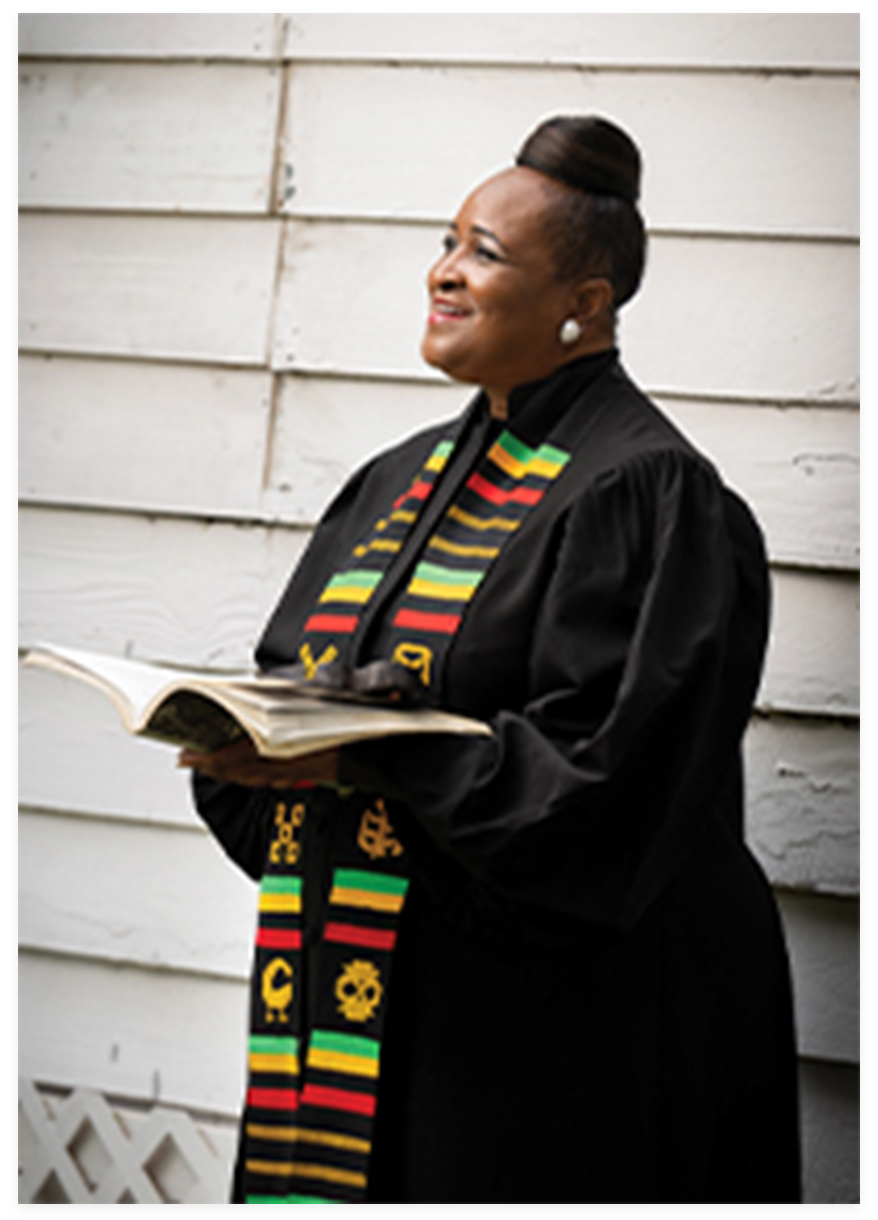
Rev. Jenkins at Moving Star Hall Praise House, a historic meeting hall on John’s Island, where the Black Sea Islanders gathered to sing, pray, and hold community events. “The echoes of their hearts still permeate the space, and my soul is connected to every pew, plank of wood, and the heartbeat of everyone who occupied that space,” she says. “It gives me strength and encouragement to walk in my purpose.”
Written By Robin Howard
Portrait By Alice Keeney
In her role at the International African-American Museum (IAAM), Rev. DeMett Jenkins is carrying on the legacy of her grandparents, Esau and Janie Jenkins. The fearless activists devoted their lives to social change and helped establish many organizations, including Haut Gap Middle School, the Progressive Club, and a Citizenship School on John’s Island, among others, to improve the educational, economic, and health conditions of the Black community on the Sea Islands and beyond.
Esau Jenkins was famous for the panels on his 1966 VW van that read, “Love is progress, hate is expensive.” Those panels are in the Smithsonian, but his granddaughter believes the sentiment is relevant now more than ever. “We can’t have progress, if we don’t have love,” she affirms.
Rev. Jenkins, whose experiences as a social worker in a women’s shelter and an investigator for Child Protective Services led her to ministry, earned her master of divinity from Samuel DeWitt Proctor School of Theology at Virginia Union University. Today, she travels the world, connecting with religious organizations and theological institutions to bring awareness of the museum and its history and encourage partnership in programming with a spiritual focus. “We’re a history museum, and we also talk about faith and spirituality. This is a place where we should be intertwined and connected because we’re doing the same work, empowering people to learn their history,” she says. “We have to be transparent and have authentic conversations about race and identity.”
Jenkins, who prefers to care for people rather than try to convert them, doesn’t believe one religion is better than another. Instead, her calling is to demonstrate God’s love by loving people—all people. “I want to live in a world of harmony. I want that for other people, too. I love people. It makes me come alive to see their eyes open at the museum, to see that they’re making connections,” she says.
Though Jenkins’s grandparents have a strong historical legacy, she is creating her own. “Community engagement is in my DNA. When I open my eyes, mouth, heart, soul, and spirit, my goal is for our community to know this is not just some museum—it’s our museum. When people own their history and feel their ancestry in their heart and soul, they feel connected.”